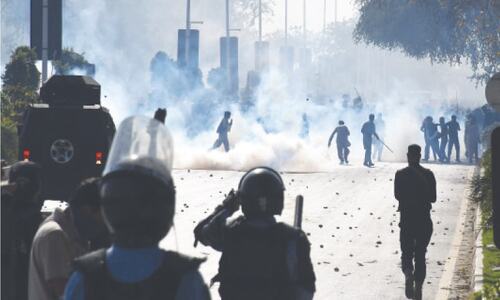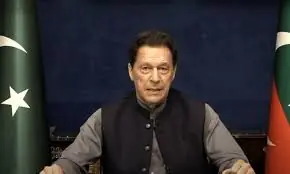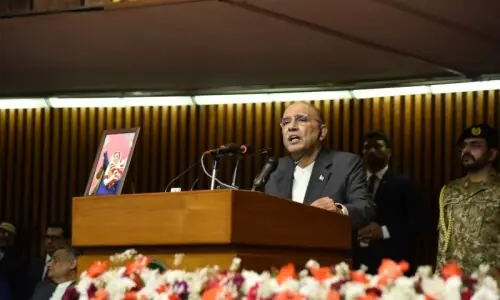ISLAMABAD: Despite the government’s claim that it has brought major improvements to the country’s education sector, there is still much to be desired, with over 24 million children still out of school.
The figure was acknowledged for the first time when the Pakistan Education Statistics 2014-15 was launched by the Ministry of Federal Education’s Academy of Educational Planning and Management.
The report said the number of out of school children (OSCs) had declined from 25.02 million in 2013 to 24.02 million in 2014-15. Pakistan has the second highest number of out of school children after Nigeria.
State Minister for Education and Professional Training Baligur Rehman, while speaking at the launch, said: “The OSCs decreased from 25 million to 24 million, and all federal and provincial governments are making their best efforts to decrease this figure.”
He added that by 2030 all OSCs will be in school, because the government is committed to achieving Sustainable Development Goals (SDGs). He said the government was not afraid of accepting flaws, and would address them. Mr Rehman said the report contained both good and bad news.
The report showed that almost half – 47pc – of children aged between five and 16 were out of school. It said more girls were OSCs than boys.
Balochistan has highest percentage of OSCs at 70pc while KP has lowest at 36pc
“There are an estimated 50.8 million children between the ages of five and 16 of which 26.8 million are in school while 24.0 million are out of school,” the report said.
It added that though the dropout rate was a serious concern, enrolment remained a significant challenge. Out of the overall 24 million OSCs, 5.4 million were enrolled but dropped out while 18.6 have never attended school.
Where do most OSCs live?
According to the report, 1,847,086 OSCs – or 70pc – are from Balochistan. Sindh followed with 56pc - 6,663,361 - Punjab with 44pc – 11,415,282. Khyber Pakhtukhwa has the lowest percentage of OSCs at 36pc – 2,454,086.
Fata has 60pc OSCs (744,363), and Azad Kashmir (AJK) and Gilgit-Baltistan have 50pc each, with 631,246 and 229,773 OSCs, respectively.
The report stated that enrolment at the primary level was 72pc, which dropped to 47pc at the middle school level and 31pc at the high school level.
It said children dropping out was a major concern, as enrolment among both boys and girls fell dramatically after primary stages. “Of all children enrolled in primary school in Pakistan, 69pc retained in class five,” the report said, and added that only 28pc children enrolled in the first grade remain until 10th grade.
The report stated that 9pc of schools did not have buildings while 18pc only had a single classroom. Meanwhile, 29pc of government schools are operating with a single teacher. The report said the quality of education was compromised in single teacher schools, and higher student-teacher ratios lead to lower interaction between students and teachers.
Despite some improvement in public school facilities, a lot is still required as 44pc of schools do not have electricity, 34pc do not have drinkable water, 30pc do not have boundary walls and 28pc do not have bathroom facilities. Furthermore, 9pc have single rooms and 38pc have unsatisfactory buildings.
The minister said the government was keen to reach the peak of excellent in education. “And it’s not possible to improve the quality of education without having quality data,” he said.
He said that according to the report, school retention has increased from 25pc to 28pc, and primary level enrolment has increased from 15.5 to 15.8 million.
Alif Ailaan campaign director Mosharraf Zaidi said: “Now that the government is focusing on enrolment, more attention is needed on the collection and dissemination of metrics on education quality and learning outcomes in government schools.”
Published in Dawn, February 26th, 2016






























